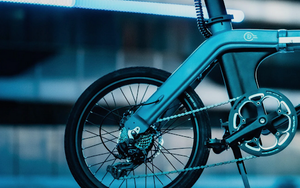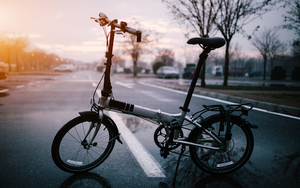Are Electric Scooters Allowed on Buses?
Apr 05, 2024
List of Contents
- Are electric scooters allowed on buses?
- Understanding electric scooter policies
- Public transportation and electric scooters
- Safety concerns with electric scooter won buses
- Alternatives for transporting electric scooters
- The future of electric scooters and public transportation
- Conclusion
Are Electric Scooters Allowed on Buses?
Electric scooters have gained popularity worldwide as a convenient and eco-friendly mode of transportation. In fact, there are estimated to be over 750,000 private e-scooters in the UK. However, their compatibility with existing public transportation systems, specifically buses, remains a topic of discussion and confusion. In this article, we will delve into the various factors affecting the permissibility of electric scooters on buses, including regulations, public transportation policies, safety concerns, and potential alternatives for transporting these scooters. Let's explore further.

Understanding Electric Scooter Policies
Before we can determine whether electric scooters are allowed on buses, it is crucial to grasp the basics of electric scooter regulations. These policies govern the usage, licensing, and restrictions related to electric scooters.
The Basics of Electric Scooter Regulations
In many countries and states, electric scooters are classified as low-speed electric vehicles (LSEVs). As such, they fall under specific regulations that vary depending on the location. For instance, most regions limit the top speed of LSEVs to around 20-25 miles per hour. Additionally, these scooters often require riders to possess a valid driver's licence and adhere to traffic rules applicable to other motorised vehicles.
In order to establish whether electric scooters are allowed on buses, it is essential to examine how transportation authorities view these innovative modes of transportation.
How Transportation Authorities View Electric Scooters
Transportation authorities play a pivotal role in determining whether electric scooters can be brought onto buses. Their perspective revolves around ensuring the safety and comfort of both electric scooter riders and other passengers. Some transportation authorities have embraced electric scooters as a viable alternative for short-distance commuting, especially in urban areas where traffic congestion is a significant concern. The Nanrobot Lightning 2.0 is a great commuting option with dual 800W motors and a lightweight frame.
Whilst some regions have embraced electric scooters on buses, others have found challenges in incorporating these devices seamlessly into existing public transportation systems. Let's explore these challenges and bus policies regarding electric scooters.

Public Transportation and Electric Scooters
While public transportation systems aim to cater to the diverse needs of commuters, introducing electric scooters onto buses raises several logistical and safety considerations. Understanding the policies revolving around electric scooters and public transportation will shed light on their compatibility.
Bus Policies Regarding Electric Scooters
Bus policies regarding electric scooters vary across different transportation authorities and regions. Some public transportation systems provide designated areas or racks on buses for securely stowing electric scooters during the commute. These facilities ensure the safety and convenience of both passengers and scooter owners throughout their journey.
For example, in London, Transport for London (TFL) have stated that e-scooters or e-unicycles are not allowed to be carried on their services, in their stations or on other premises on the public transport network even when folded, due to the risk of defective lithium-ion batteries causing fires on their network. If you don’t comply, you could risk a fine up to £1,000.
However, it is essential to note that not all buses and transportation systems are equipped with facilities to accommodate electric scooters. As a result, challenges may arise when riders attempt to bring their scooters on board. Let's take a closer look at some of these challenges.
Challenges of Bringing Electric Scooters on Buses
One of the primary challenges associated with bringing electric scooters on buses is space limitation. Buses have limited storage areas, and accommodating scooters alongside passengers' belongings can prove to be impractical.
Another challenge arises from the weight and size of electric scooters. Depending on the model and construction, some electric scooters may be too heavy or bulky to load onto buses efficiently. This poses a risk not only to the person loading the scooter but also to fellow passengers in case of accidents or instability.
The safety concerns related to electric scooters on buses are of utmost importance. Let's explore the potential risks and hazards associated with transporting these scooters.

Alternatives for Transporting Electric Scooters
Considering the challenges and safety concerns associated with bringing electric scooters on buses, some viable alternatives exist for transportation purposes. Let's explore these options.
Personal Vehicles and Electric Scooters
One of the most straightforward alternatives is for electric scooter owners to travel using their personal vehicles. Many individuals already possess compact cars, trucks, or vans that can accommodate their electric scooters securely. This allows for more flexibility in terms of transportation, as well as ease of parking and proximity to their destination.
Another alternative worth considering is exploring other public transportation options that are more accommodating towards electric scooters.
Other Public Transportation Options
In some areas, there are public transportation options specifically designed for accommodating electric scooters alongside passengers. These include designated electric scooter-friendly transport services, such as shuttle buses or vans. These vehicles are equipped with storage areas or modified interiors to accommodate electric scooters more effectively. Exploring these alternative public transportation options can provide scooter owners with safe and hassle-free commuting experiences.
The Future of Electric Scooters and Public Transportation
As electric scooters continue to gain popularity and become more integrated into urban commuting, it is essential to consider the future of these devices in relation to public transportation systems.
Proposed Changes to Policies
Transportation authorities are continuously evaluating and updating their policies regarding electric scooters and public transportation. This evaluation encompasses safety considerations, logistical issues, and evolving user needs. Proposed changes may include improving storage facilities on buses, developing guidelines for secure loading and unloading, or introducing dedicated electric scooter transportation services.
Another factor that will shape the future of electric scooters and public transportation is the ongoing technological advancements in both areas.
Technological Advancements and Their Impact
Advancements in electric scooter technology, such as improved battery life, weight reduction, and more compact designs, may pave the way for greater compatibility with buses and other modes of public transportation. Additionally, advancements in public transportation systems, such as autonomous buses or smart infrastructure, may present innovative solutions for integrating electric scooters seamlessly into these systems.

Conclusion
In conclusion, the compatibility of electric scooters with buses greatly depends on the specific regulations, policies, and safety considerations of transportation authorities and public transportation systems. While challenges exist, exploring alternative transportation options and technological advancements may offer promising solutions for integrating electric scooters into public transportation. As we move towards a more sustainable and interconnected future, finding ways to make electric scooters accessible and convenient for all commuters remains an ongoing endeavour.
Ultimately, the permissibility of electric scooters on buses depends on striking a balance between the benefits they offer and the safety and comfort of all passengers. It is crucial for transportation authorities and scooter owners to collaborate, share experiences, and work towards creating a transportation environment that caters to the evolving needs of all commuters.






